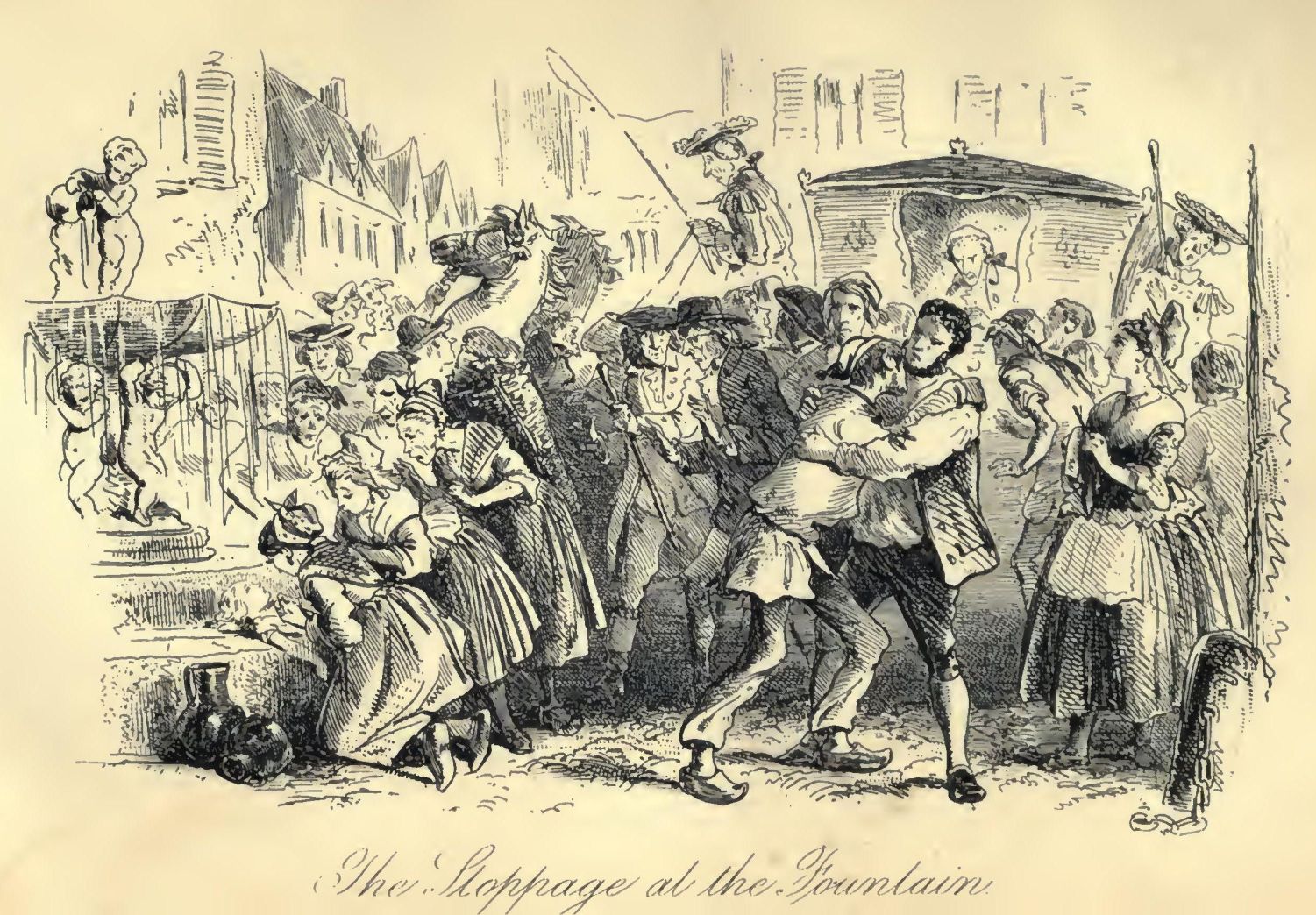
My wife once told me a story from A Tale of Two Cities. It took place in a small village outside of Paris in the late 18th century. The French Revolution had not yet begun, and the townspeople were living under oppressive poverty.
One day a large cask of wine was being unloaded from a cart when it tumbled, fell, and “shattered like a walnut shell.” Wine poured out into the street, making pools and rivulets in the cobblestones. The townspeople stopped what they were doing to attend to the spilled wine.
Some men kneeled down, made scoops of their two hands joined, and sipped, or tried to help women, who bent over their shoulders, to sip, before the wine had all run out between their fingers. Others, men and women, dipped in the puddles with little mugs of mutilated earthenware, or even with handkerchiefs from women’s heads, which were squeezed dry into infants’ mouths…. others devoted themselves to the sodden and lee-dyed pieces of the cask, licking, and even champing the moister wine-rotted fragments with eager relish.
Did the townspeople lose their humanity? That’s one way to read the story. Like a pack of hyenas on an antelope they scavenge, staining their hands and faces blood red. Without dignity or composure, they lick to the lees.
Yet a broken cask of wine is not like a fallen antelope. The meat of the antelope keeps the hyenas alive, but the spilled wine keeps the townspeople human. They scoop up a dribble in a broken pot to taste the product of human ingenuity. They bury their faces in the wine-dark street to celebrate a memory of celebration.
And this celebration is not private. Like all festivals, it is public. Even the infants get a handkerchief of wine.
There was a special companionship in it, an observable inclination on the part of every one to join some other one, which led, especially among the luckier or lighter-hearted, to frolicsome embraces, drinking of healths, shaking of hands, and even joining of hands and dancing, a dozen together.
We all seem to be alarmed of late. Conservatives and liberals are both wringing their hands, convinced of a looming dystopia. In light of these concerns, perhaps Dickens’s story could be read as a kind of doomsday preparation. In what ways can we exercise and celebrate our freedoms by being connoisseurs of the products of civilization?
When was the last time you tasted something so urgently as those townspeople tasted that spilt wine? When did you last savor a taste of coffee or a conversation or a song as though it were the official representative of humanity – a scrap, a souvenir of goodness? We don’t lack for treats, generally. But we do often lack for attention.
Furthermore, when did you last make something worth savoring? Have you made a meal, built a campfire, or told a story that is worthy of rapt attention? It needn’t be perfect. But, like wine mixed with the mud on the street, it should contain some notion of the human, which itself contains some notion of the divine.

